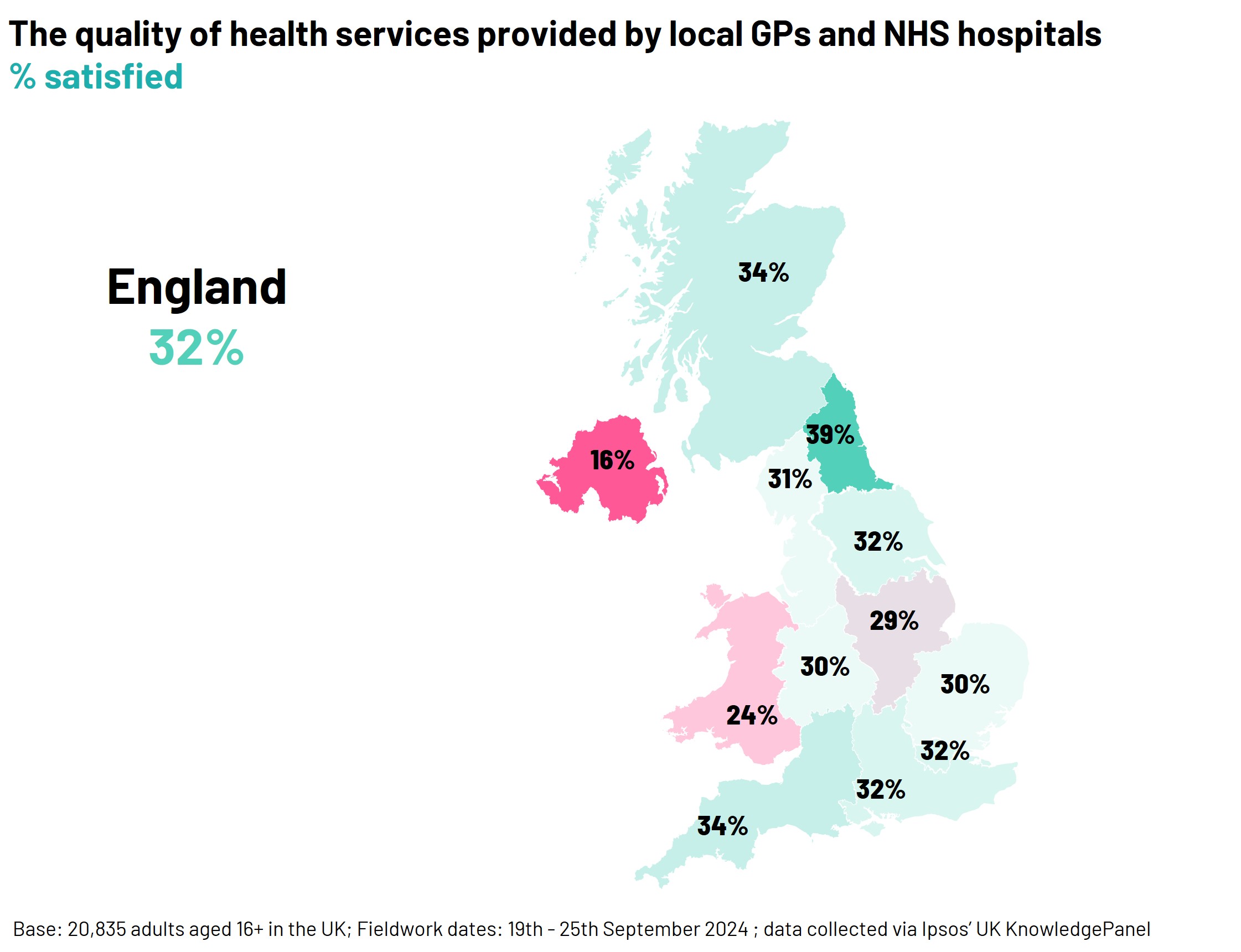Low satisfaction with health services highlights health inequalities
The research, based on a nationally representative survey of over 20,000 adults from Ipsos’ online probability KnowledgePanel, unveils a stark picture of health, highlighting the challenges faced by different regions and demographic groups.
Key Findings:
- Only 31% of UK adults are satisfied, with lowest levels in Northern Ireland and Wales. Scotland fares better, particularly in the Highlands and Islands.
- Deprivation is strongly linked to lower satisfaction, further entrenching known inequalities.
- This highlights the need for targeted interventions in these specific areas.
Health services satisfaction low across the board
Only 31% of UK adults express satisfaction with their local GP and NHS hospital services. Nowhere in the country demonstrates particularly high satisfaction, underscoring the widespread nature of the health crisis.

This dissatisfaction is particularly acute in Northern Ireland, where satisfaction plummets to a mere 16%, and Wales, where 24% are satisfied. Scotland fares somewhat better with 34% satisfied with health services, including pockets of higher satisfaction in the Highlands and Islands where nearly half (48%) are satisfied.
A clear link emerges between deprivation and health service satisfaction: those in the most deprived areas report lower satisfaction (27%) compared to their more affluent counterparts (35%). Health inequalities have long been explored by the GP Patient Survey that Ipsos runs on behalf of NHS England; people in more deprived areas often face greater health challenges and may have more difficulty accessing timely and quality healthcare services. This disparity underscores the need for targeted interventions to improve healthcare access and quality in these underserved communities. Additionally, satisfaction levels are generally lower among younger age groups and individuals without formal qualifications. These findings highlight the need for a more equitable healthcare system that addresses the specific needs of vulnerable populations.
Satisfaction levels also vary across political lines. SNP (40%) and Conservative (39%) voters report the highest satisfaction with health services, while Plaid Cymru (21%) and Reform UK (23%) voters express the lowest.
Trinh Tu, UK Managing Director, Public Affairs at Ipsos said:
"These findings show key areas where the Labour government can make progress and also where it faces significant tests. The pervasive dissatisfaction with health services, especially among specific groups and regions, underscores the pressing need to fulfil promises of NHS improvement."
Technical note
Ipsos conducted a large survey via the UK online random probability KnowledgePanel. Panellists are recruited using random probability unclustered address-based sampling, the gold-standard in UK survey research, meaning that every household in the UK has a known chance of being selected to join the panel. Crucially, members of the public who are digitally excluded are given a tablet and provided with an email address.
Ipsos interviewed 20,835 adults aged 16+ living in the UK, including oversamples in Scotland and Northern Ireland. Data collection took place between 20-25 September 2024. Data was weighted by gender, age, region, education, ethnicity, Index of Multiple Deprivation quintile, number of adults in the household, to reflect the profile of the UK population.




